Whether you're a seasoned flower enthusiast or a curious beginner looking to add a touch of elegance to your space, learning the art of flower arrangement can be both fun and rewarding. From choosing the perfect vase to creating visually stunning compositions with focal flowers, this guide breaks down how to arrange flowers like a pro. By the end, you’ll be ready to transform your blooms into gorgeous conversation pieces!
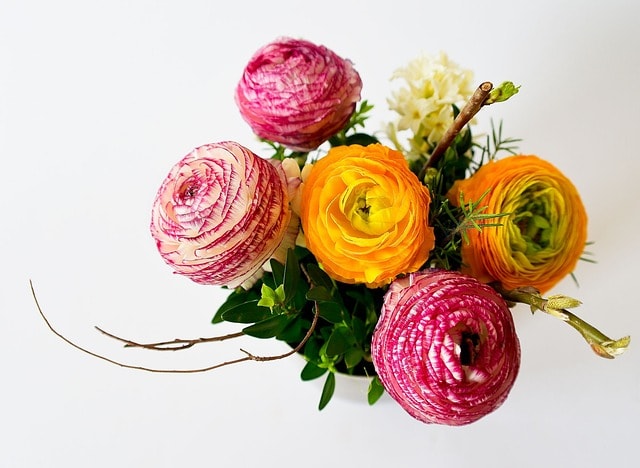
Mastering How to Arrange Flowers
Creating a floral arrangement isn’t just about throwing flowers into a vase—it’s an art form that requires understanding the fundamentals of flower arranging and floral design.
Why Learn Flower Arrangement?
-
Brighten Your Space: A beautiful bouquet brings life, color, and vibrant energy to any room.
-
Unleash Your Creativity: Arranging flowers allows you to express your artistic flair.
-
Feel the Therapeutic Benefits: There’s something calming about arranging flowers and crafting something beautiful with your hands.
Essential Tools and Techniques
Before you start creating flower arrangements, it’s crucial to gather the right tools. Here’s what will set you up for success:
-
A favorite vase that holds water securely.
-
Sharp scissors for trimming stems.
-
Floral tape or chicken wire to hold your flowers in place.
-
Flower food to prolong the life of your blooms.
Understanding the growth patterns of flowers and practicing basic techniques like trimming long stems at an angle will ensure your bouquet stays fresh and vibrant.
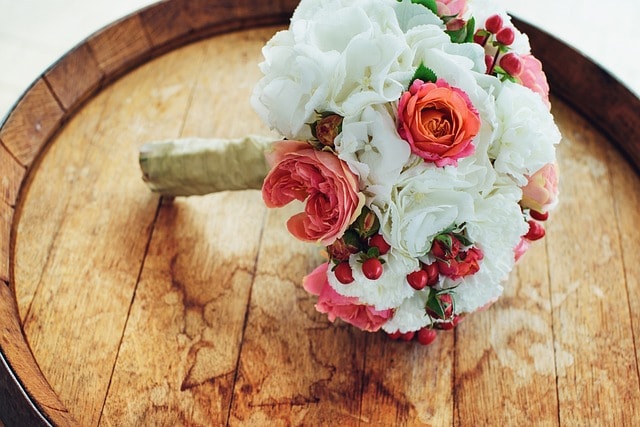
Preparing the Flowers and Vase
Step 1: Pick the Best Vase
Your vase plays a crucial role in shaping the final look of your bouquet. Choose one that complements your flowers and works well with their size and shape. A taller vase, for example, works perfectly with tulips and roses, while smaller vases are great for smaller flowers and posy arrangements.
Step 2: Source Your Flowers
Head to your new garden, a local market, or a florist to pick fresh flowers. Look for seasonal blooms with strong stems and vibrant hues. Consider flowers with different growth patterns, like hydrangeas for volume or baby’s breath for texture.
Step 3: Prepare Your Flowers
-
Trim stems at a 45-degree angle to promote better water absorption.
-
Remove leaves that will sit below the waterline to keep bacteria out of the vase.
-
Use floral foam, chicken wire, or floral tape to secure your blooms and create structure.
Creating a Base with Focal Flowers
The key to a stunning arrangement is a solid base. Here’s how to get started.
Start with Greenery
Layer a variety of foliage at the base of your vase to add depth, dimension, and texture. Experiment with a mix of bright green eucalyptus and muted olive branches.
Add Statement Blooms
Next, add your focal flowers, which should be the centerpiece of the arrangement. Choose roses, tulips, or hydrangeas and keep the number odd for a bold, natural look. These statement flowers set the tone for your bouquet—whether it's romantic, summery, or minimalist.
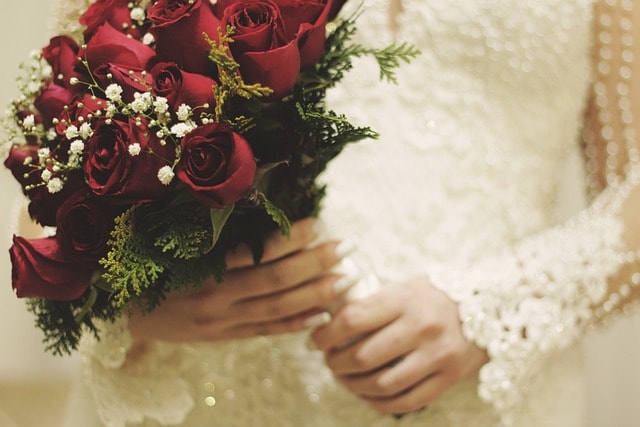
Adding Filler Flowers and Textural Elements
Layer with Secondary Flowers
Now that your base is ready, layer on secondary flowers such as daisies or snapdragons. These blooms should complement the colors and textures of your focal flowers.
Fill the Empty Spaces
Use filler flowers or smaller blossoms, like baby’s breath, to round out your bouquet. They’re perfect for covering any gaps and ensuring the arrangement looks full and balanced.
Incorporate Texture
Textural elements like ornamental grasses or twigs can give your bouquet surprisingly unique character. Don’t be afraid to get creative!
Arranging the Flowers
Creating a balanced bouquet takes practice, but the following formula will guide you every time:
-
Foliage First: Criss-cross greenery for a structured base.
-
Focal Flowers Second: Place your showstopping blooms strategically.
-
Fill with Texture: Use fillers to add depth and balance.
If you want to experiment beyond traditional bouquets, try asymmetrical arrangements for a more modern, artistic vibe.
Expert Tips for Arranging Flowers
-
Flower Food is Key: Add flower food to the water to extend your bouquet’s life.
-
Change Water Regularly: Fresh water every 2–3 days makes all the difference.
-
Get Creative: Experiment with favorite vases and unexpected combinations.
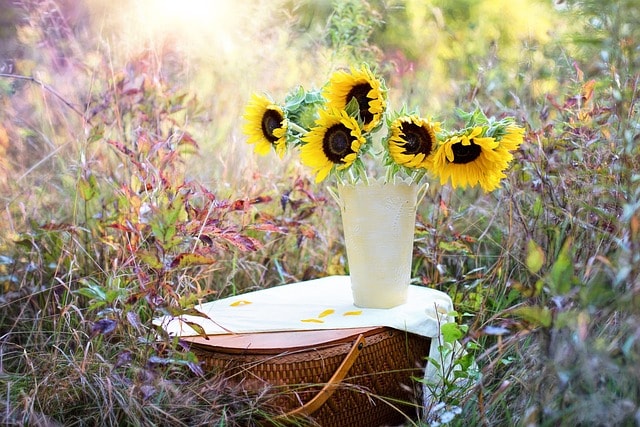
Avoid These Common Flower Arrangement Mistakes
To ensure your bouquet looks polished and professional, steer clear of these pitfalls:
-
Avoid using a vase that’s too large or too small.
-
Don’t overcrowd—leave space for your flowers to spread and bloom.
-
Never use wilted or low-quality blooms, as they can drag down the whole arrangement.
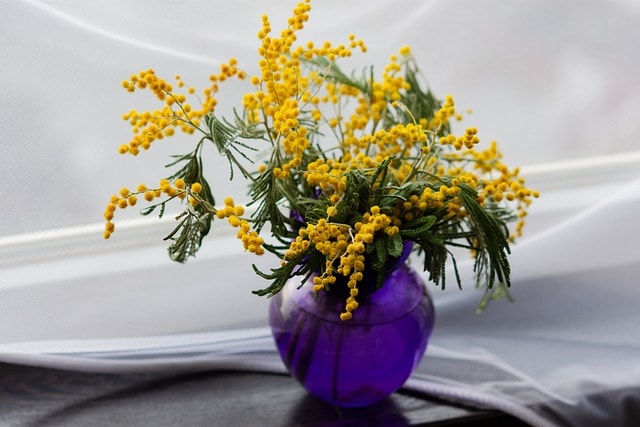
Bringing It All Together
Add Finishing Touches
Once everything is in place, take a step back to observe your work. Trim any excess stems and consider adding a decorative ribbon or bow around the base of the vase for an extra pop of style.
Admire Your Creation
Crafting a bouquet is as much about the process as the final result. Place your arrangement where it’ll be most appreciated, and don’t forget to stop and admire your beautiful work.
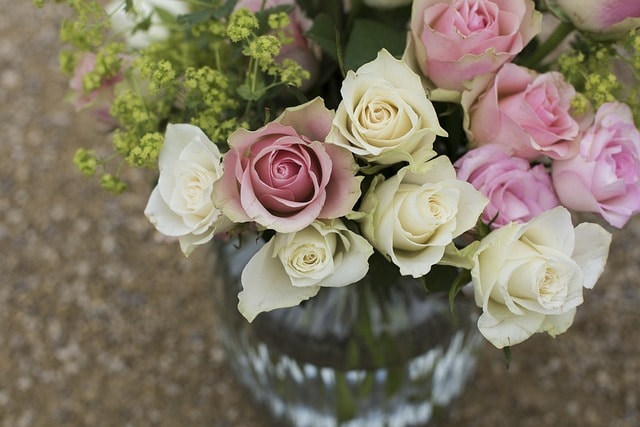
Closing Notes
Arranging flowers isn’t just a skill—it’s an art that transforms spaces and uplifts moods. Whether you’re brightening up your own home, gifting a bouquet to a loved one, or experimenting with flowers from your own garden, this step-by-step guide is your ultimate companion in floral design.
Feeling inspired? Share your stunning floral arrangements with our community on Instagram, or visit a local florist to pick up your next bunch. With enough practice, you’ll be arranging bouquets that rival the work of professional florists!
Additional Resources
Expand your knowledge and skills in floral design with these helpful resources:
-
Flower Arrangement Basics - Beginners' Guide: Learn the foundational techniques for arranging flowers like a pro.
-
Caring for Cut Flowers: Tips on keeping your arrangements fresh and vibrant for longer.
-
Seasonal Flower Guide: Discover which flowers are in season to incorporate into your designs.
-
DIY Floral Classes Online: Take interactive classes and improve your bouquet-making skills from home.
-
Visit Your Local Florist: Find florists in your area for inspiration and fresh blooms.
-
Floral Color Theory: Understand how to combine colors effectively to create visually stunning arrangements.
-
Eco-Friendly Floral Design: Learn how to make sustainable choices in flower selection and design materials.
-
Wedding Bouquet Inspiration: Explore ideas for creating beautiful and unique bouquets for special occasions.
-
Floral Arrangement Tools: A guide to essential tools every floral designer should have.
-
History of Floral Design: Gain insight into the origins and evolution of floral artistry throughout cultures and time.
Take these resources as your next step to becoming an expert in floral arrangement!

